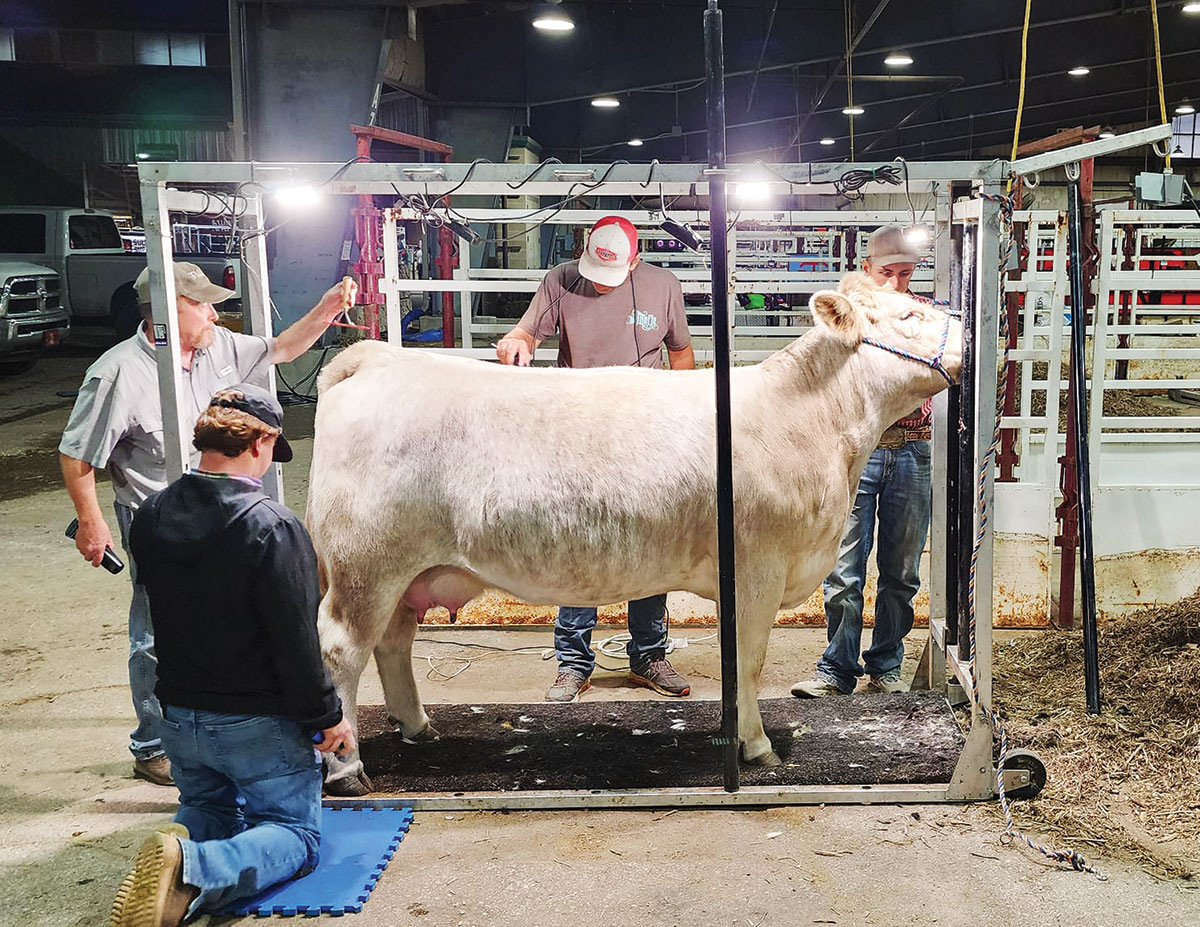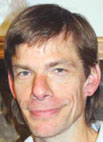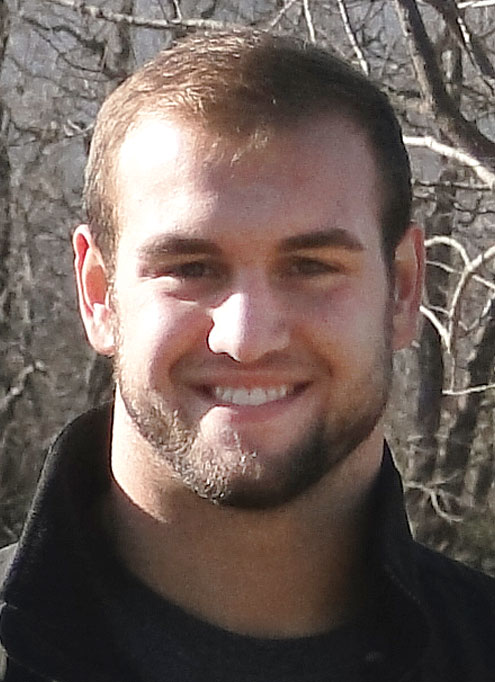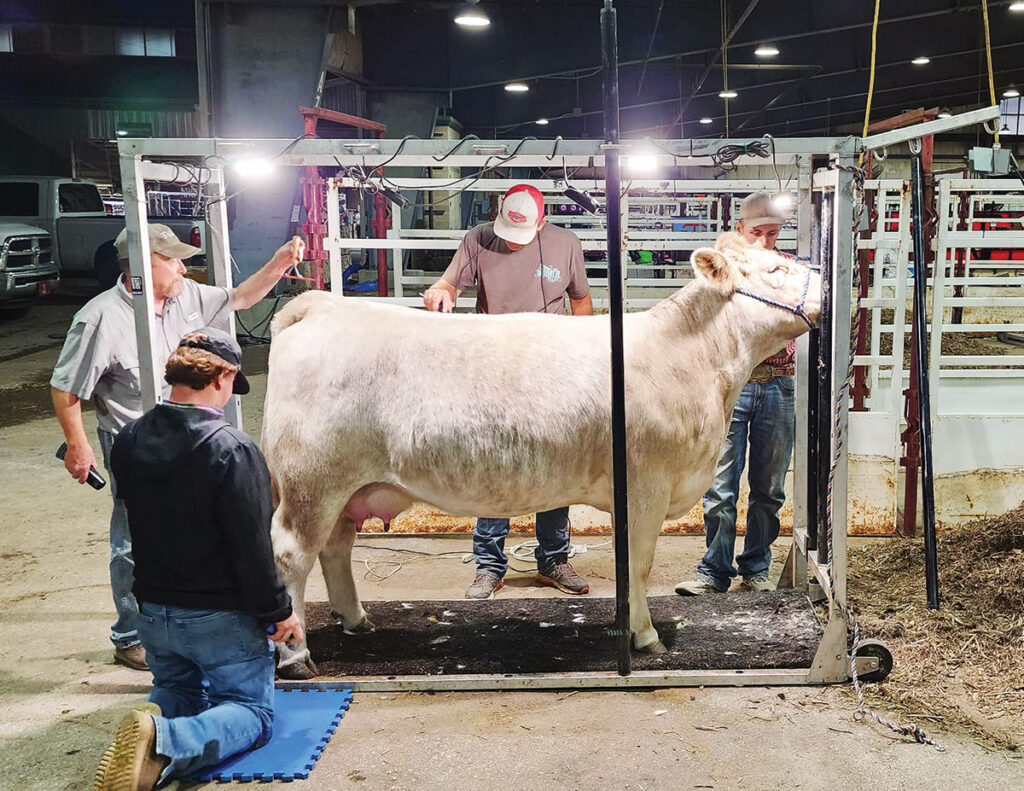
Colby King sells breeding stock, show animals and beef
WEBBERS FALLS, OKLA. – During his football playing days, Colby King liked to be in the middle of the action. As a linebacker at Northeastern State University in Tahlequah, Okla., he played to win at all times.
To be a linebacker at any level, a player not only has to be smart and physical, they also have to carry a never surrender attitude. That was exactly how Colby played the game throughout his playing career.
When Colby hung up his shoulder and picked up a rancher’s hat, that mindset didn’t leave him. In fact, it’s that distinct mentality that has helped him and his wife, Phallyn, turn 4Kings Ranch into a prosperous beef ranch in Oklahoma in only 10 years.
Even before he created 4Kings Ranch in Webbers Falls, Okla., in 2013, Colby has been focused on creating a legacy. If he was going to make that happen, he knew he had to approach it with the same intensity as he took to the football field.
“I think legacy is something I think about and in the cattle industry to have some sort of legacy,” Colby said. “I am not real good at just kind of halfway doing it. I come from a sports background. I was raised by a football coach, I played college football, and so I don’t do real good just halfway doing stuff. So if I was going to do it, I wanted to be good at it.”
Yet, Colby’s gridiron mentality has also had to be tamed at times. Since he didn’t inherit his land or the business like most ranchers today, he and his wife have had to build 4Kings Ranch from scratch. Even as he grew from his original plot of 400 acres to his current 700 acres, it didn’t happen at the pace he wanted.
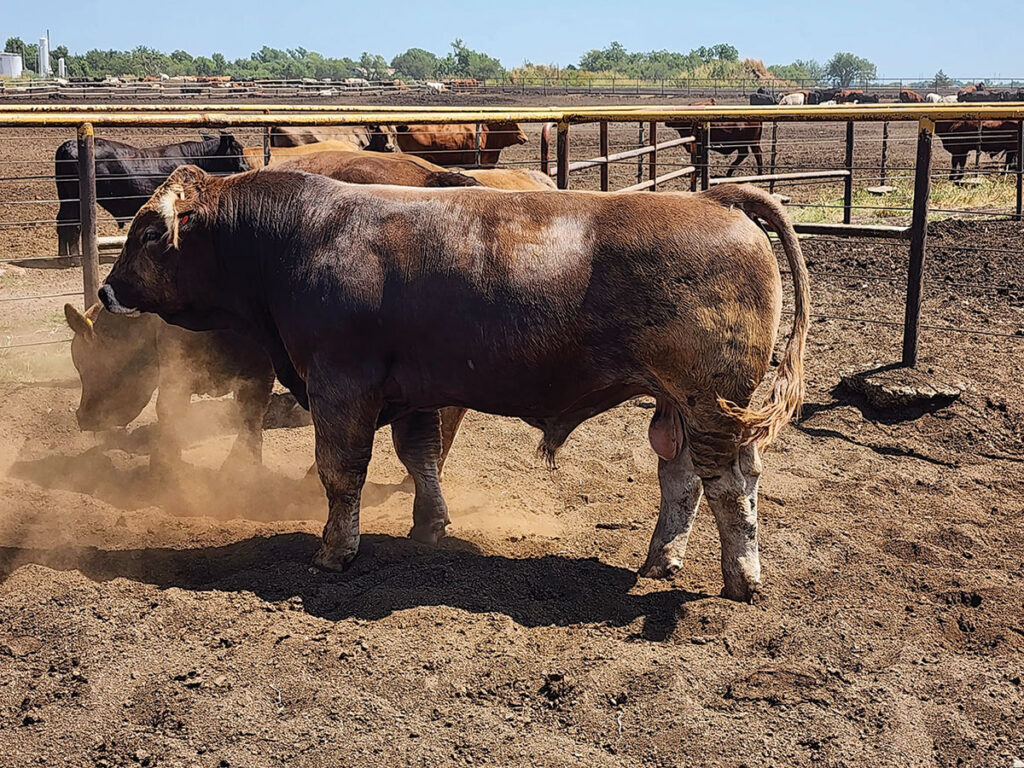
“It didn’t progress as fast as I’d like it to. But my wife has to remind me that it’s a marathon, unfortunately,” Colby said. “And you talk to people in the industry, it takes a tremendous amount of money to start. If you’re a kid coming out of high school and you just decide you want to be a farmer or rancher and you don’t come by it by birthright, it is nearly impossible. So yeah, is pretty tough to come up that way. But I had a vision of it. Sometimes it didn’t feel like it was happening fast enough. And then one day you wake up and people are calling to buy bulls and buy cows and you’re like, ‘I’ll be dang, we finally did something.’ But there was a whole bunch of years we didn’t make any money. It’s a lot of money to build a herd, especially a registered one.”
When Colby first began looking into starting his own ranch, he wanted to stand out from the pack. After researching all types of breeds, King said the Braunvieh, which is German for brown cow, was best suited for what he was trying to accomplish.
“There’s obviously the black-hided cow market that is big and it’s very successful. But not growing up on a giant legacy ranch, I kind of thought to myself, can I ever make a difference in a breed with where I came from? And the answer to that’s probably not,” King said. “I looked at the Braunvieh cattle and what they can do and what they’ve done. It’s a still relatively new breed to the United States that they didn’t bring into the U.S. until 1983, 84. I felt like it was a breed that I could make a difference in and make a name for ourselves.”
Colby imported a large group of heifers from Canada, whose genetics are from some of the first animals imported from Switzerland to North America.
“The Braunvieh breed is a remarkably adaptable creature able to survive in high mountain altitudes to the plains of South Africa, the jungles and swamps of South America, and everything in between,” King said. “They possess unrivaled maternal qualities, fertility, and carcass traits. Their exceptional outcross abilities shine when producers see the hybrid vigor Braunvieh bulls bring to commercial herds.”
4Kings Ranch sells only certified organic beef from their Braunvieh cattle with no antibiotics or hormones. They have registered full-blood and purebred bulls, heifers and pairs year-round ranging from traditional colored to black. The business uses a four-season breeding program to synchronize the cow’s nutritional requirements with the forage available.
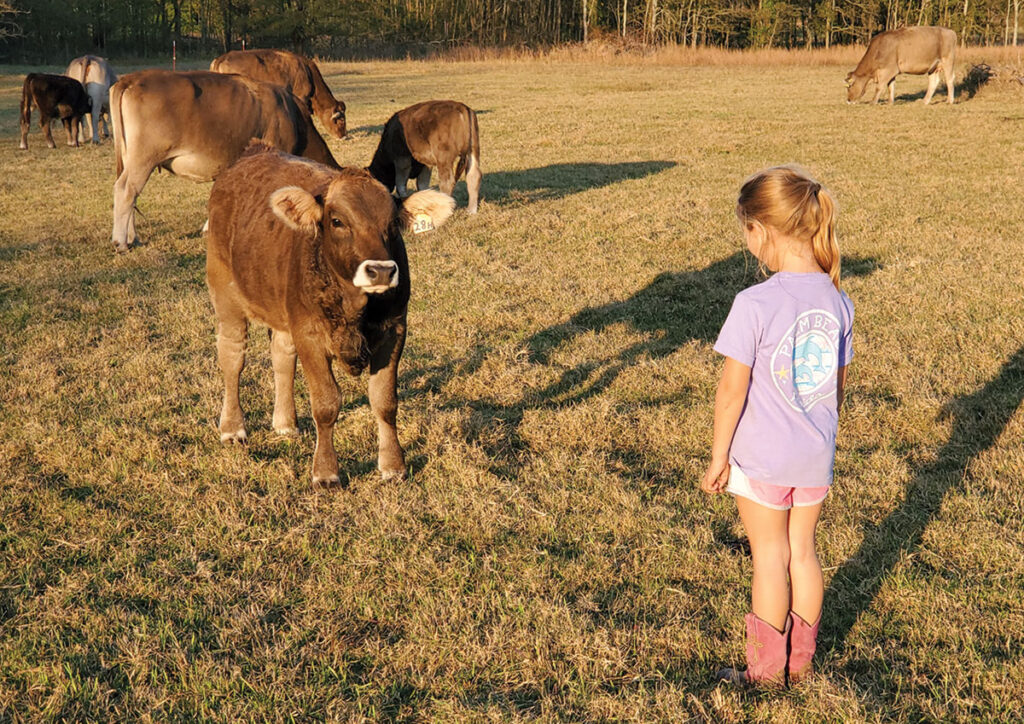
According to Colby, grazing their cattle on 600 acres allows them to give their pastures time to recover when moving cattle to the best grasses at the most optimal time of the year.
Since 4Kings Ranch can move cattle according to the feed sources, their cattle remain 80 percent grass-fed throughout the year.
“In order to provide the same quality of beef year-round we have also developed a short-term feeding cycle which combines hay grown on our ranch and locally sourced grain ration that keeps the cattle in the best health possible before harvest,” King said. “Every animal that goes into our program is hand selected for harvest based on their DNA, carcass data and performance metrics.”
Colby normally keeps his herd around 150 head. But he said those numbers can go up or down depending on the year and outside circumstances.
“We reduced some with the recent droughts, just really our cattle that weren’t as good as the keepers. So the animals that held body condition, we obviously latched onto them,” Colby said. “We had some pretty good replacement females in the pipeline and backfilled with that. And we’re always looking at consignments if we can bring something in a little different from a color standpoint or phenotype, things like that.”
While Colby still has plans to keep expanding his ranch and their 4K Beef store, he is no longer worrying about whether he will be able to leave a legacy or not.
“We have made a mark. I’d say so from the show ring to performance bulls. It’s not uncommon to see a 4K bull topping all the animals in a feed yard when they’re on test,” Colby said. “I think we’ve done something. I don’t necessarily have to really advertise a lot to sell cows now. So the phone rings now, and we sell beef and live animals from coast to coast. So yeah, I think we’ve done something in ranching terms, a relatively short amount of time.”

